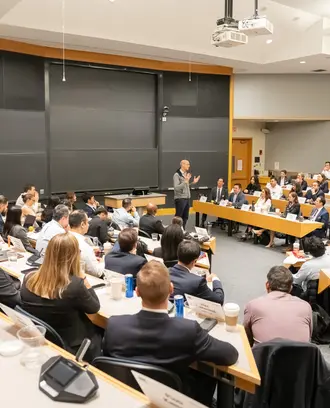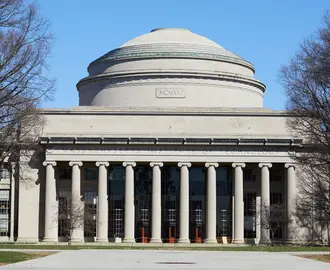How the MIT EMBA helped to grow a nonprofit that makes Boston a better place to live
Lauren Hoops-Schmieg, EMBA '18
When I began my MIT EMBA journey, I knew that I would gain a diverse network of talented professionals and learn some very valuable information from the courses. However, I was a little concerned about how (and if) my degree would truly impact my nonprofit, the Hill House community center. After all, my organization was vastly different from many of the industries represented in my cohort.
It turns out that I didn’t need to worry. Not only were the courses applicable to my job, they’ve been helping me to make a significant impact.
For example, in an Organizations-Lab (O-Lab) project, I looked at marketing and communications timelines to see the effect they have on program and fundraising revenue at a nonprofit where resources are lean. I predicted we would be able to increase revenue by 10-20% by tightening these deadlines and keeping the communication lines open using the visual whiteboarding method.After implementing this new method, we saw program revenue grow by 10%. This year, I am projecting that our program revenue alone will increase by more than 18%.
Fundraising last year also dramatically increased. At the end of FY18, we saw fundraising grow by 39%. This year, we are on pace to see similar growth, as we are already trending well ahead with YTD numbers at 20%.
While we have been booking surpluses since I arrived at Hill House in 2013 (my first year we turned a six-digit deficit from the previous year into a six-digit surplus, but it was because of low-hanging fruit), it was mostly on expense savings and small revenue growth. Now, we are truly in a spirited revenue growth phase and it appears to be sustainable from all signs from our membership and six-straight seasons of exponential program growth.
From a net standpoint, this means our surpluses have significantly increased, which has enabled us to address staff retention and other issues surrounding nonprofit salaries and general infrastructure needs.
Some of the changes we’re making include:
- Investing in staff salaries. This is already leading to better retention rates.
- Switching health insurance carriers to broaden our network and reduce deductibles.
- Increase headcount to better support the Program and Fundraising Departments.
- Investing in technological infrastructure with new online payroll timesheets and onboarding system, migration to cloud services, a new website design, and a new online performance management system.
- Investing in facilities to redesign several of our rooms and a plan to build another floor onto the building.
- Increasing marketing and advertising to continue to spur growth and connect with the community.
All this has made the organization stronger, member satisfaction higher, and growth continual.
The MIT EMBA is impacting me as a leader too. I am continually challenging my assumptions and trying to be even more present for my staff and the community. I’ve learned a lot about my leadership strengths and weaknesses. I now recognize my weaknesses sooner and have more tools to course correct in real time.
I’ve not only grown personally and professionally, but this program is also helping me to make a positive impact on an industry that doesn’t always benefit from advances in leadership, knowledge, and cutting-edge research. I’m better equipped as a leader to help ensure that my organization meets its mission and makes Boston a better place to live for families and neighbors for the long term.
Lauren Hoops-Schmieg, EMBA '18, is Executive Director of Hill House, Inc in Boston, MA.



